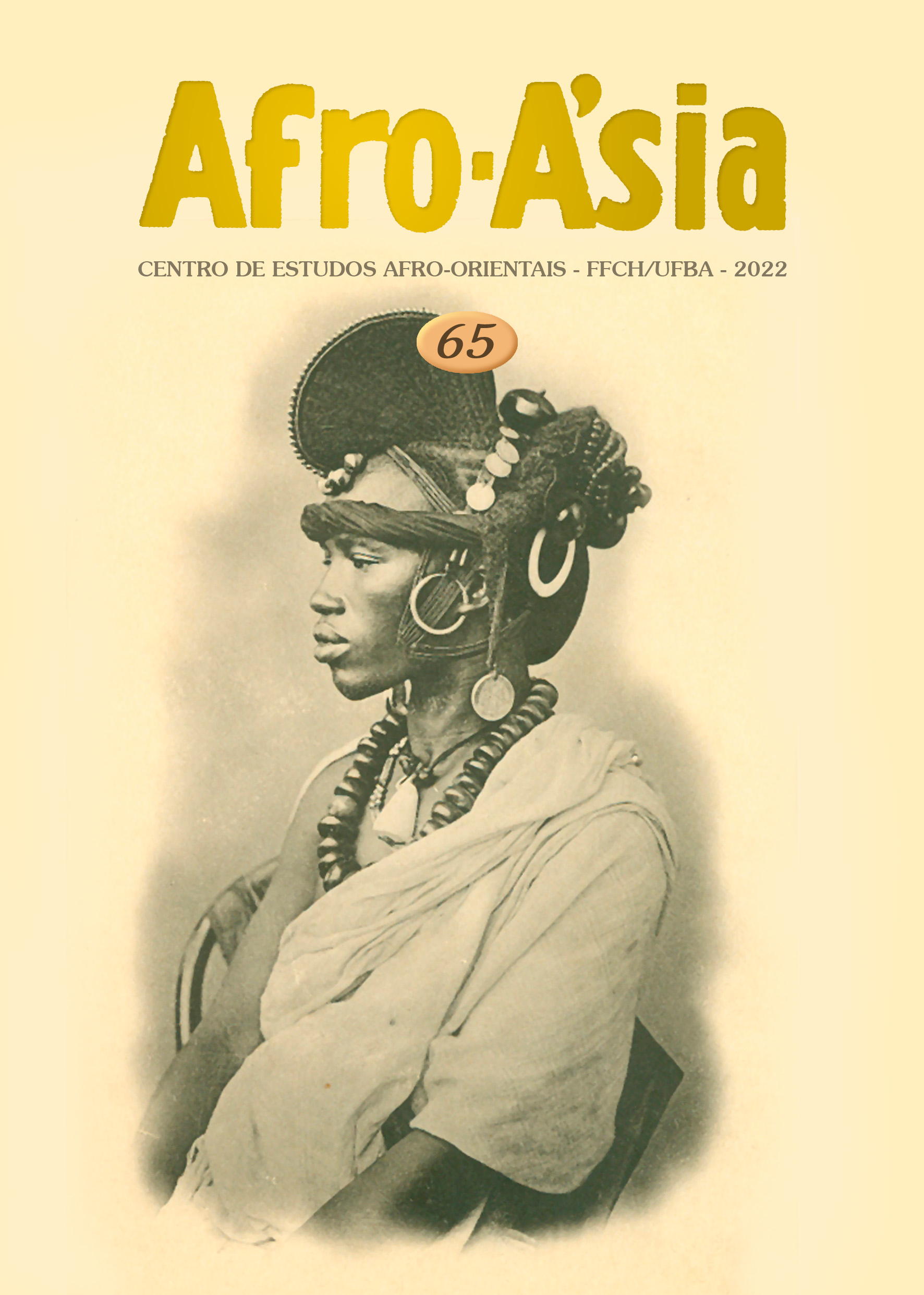Vida e morte de um príncipe do Congo
Nicolau de Água Rosada e o fim do tráfico de escravizados na África Centro-Ocidental
DOI:
https://doi.org/10.9771/aa.v0i65.45014Palavras-chave:
Abolição do tráfico de escravos, África Central, Congo, Angola, Nicolau de Água RosadaResumo
O artigo toma como fio condutor a trajetória do príncipe Nicolau de Água Rosada para analisar a conjuntura do tráfico de escravos em Angola e Congo. Em 1845, ele foi como emissário para Lisboa depois de um tratado antitráfico firmado entre Portugal e seu pai, o rei Henrique II. Permaneceu cerca de dois anos em Portugal, e no seu retorno a Angola tornou-se funcionário da administração colonial. Água Rosada alcançou notoriedade ao se manifestar publicamente contra um tratado de vassalagem assinado pelo rei Pedro V em 1859. Paradoxalmente, foi acusado de ser aliado dos portugueses, sendo assassinado em 1860 por africanos contrários ao avanço da presença europeia no baixo Congo. Nicolau nunca se pronunciou contra ou a favor do tráfico de escravos. No entanto, sua trajetória só pode ser entendida a partir de uma perspectiva que situe o tráfico como elemento central da geopolítica da África Centro-Ocidental.
Downloads
Downloads
Publicado
Como Citar
Edição
Seção
Licença
Copyright (c) 2022 Roquinaldo Ferreira, Lucilene Reginaldo

Este trabalho está licenciado sob uma licença Creative Commons Attribution 4.0 International License.
Você pode compartilhar, adaptar e utilizar livremente este trabalho para qualquer finalidade legítima, desde que mencione explicitamente a autoria e a publicação inicial nesta revista.




